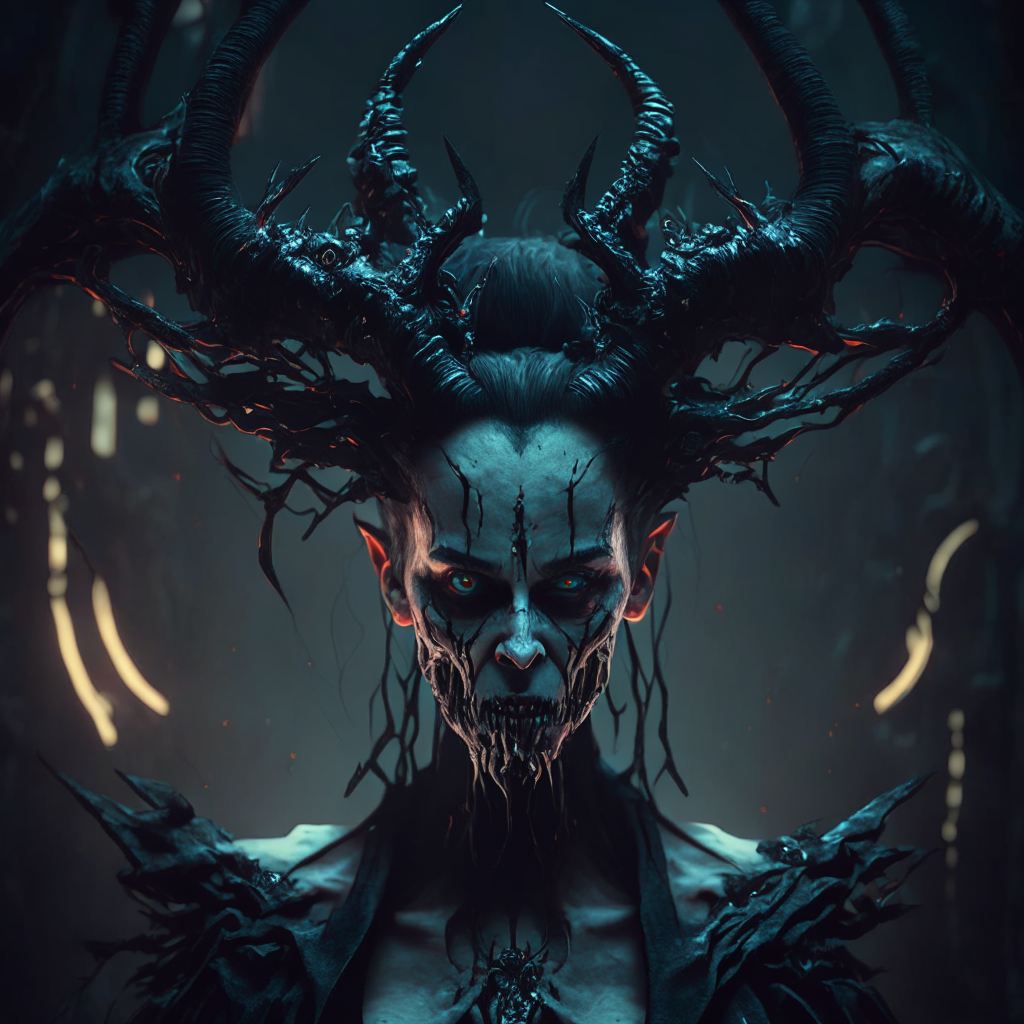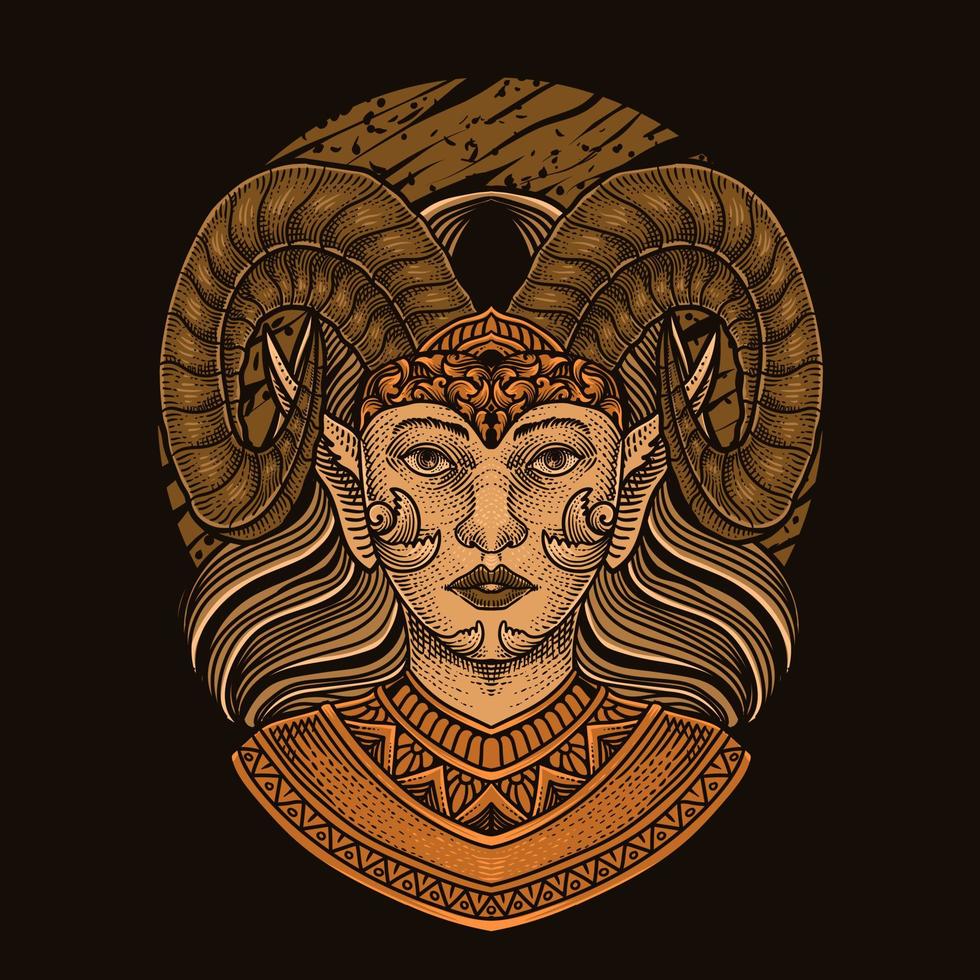Throughout history and mythology, demonic woman names have captured the imagination of storytellers and audiences alike. These names often evoke a sense of mystery, power, and danger, reflecting the complex roles that female demons play in various cultures. From ancient legends to modern interpretations, demonic woman names are a fascinating subject that combines folklore, religion, and cultural symbolism.
Exploring demonic woman names offers a glimpse into the darker aspects of human creativity and belief systems. These names are not merely labels; they carry deep meanings and associations that reflect the fears and fascinations of societies throughout time. Whether you're delving into mythology, literature, or even gaming, understanding these names can enhance your appreciation of the stories behind them.
This article will guide you through a comprehensive list of demonic woman names, their origins, and their significance. Whether you're a writer seeking inspiration, a gamer building a character, or simply curious about the darker realms of mythology, this guide will provide valuable insights and knowledge. Let's dive into the world of demonic women and uncover their intriguing names.
Read also:Reagan Airport Parking Prices
Table of Contents
- Biography of Demonic Women
- Origins of Demonic Woman Names
- Demonic Women in Mythology
- Demonic Women in Religion
- Demonic Women in Literature
- Popular Demonic Woman Names
- Characteristics of Demonic Women
- Symbolism Behind Demonic Woman Names
- Modern Interpretations of Demonic Woman Names
- Conclusion
Biography of Demonic Women
Historical Context of Demonic Women
Demonic women have been a part of human storytelling for centuries, appearing in various forms across cultures. These figures often embody the duality of beauty and danger, seduction and destruction. Below is a brief overview of some well-known demonic women:
| Name | Origin | Role |
|---|---|---|
| Lilith | Jewish Mythology | First Woman, Demon Queen |
| Succubus | Christian Demonology | Demoness of Seduction |
| Mara | Hindu/Buddhist Mythology | Nightmare Spirit |
| Banshee | Celtic Folklore | Death Omen |
These demonic women have left a lasting impact on cultural narratives, often serving as symbols of fear and intrigue.
Origins of Demonic Woman Names
Etymology and Cultural Influences
The origins of demonic woman names can be traced back to various cultures and languages. Each name carries its own significance, often rooted in the beliefs and fears of the society that created it. For instance:
- Lilith: Derived from the Hebrew word "lilith," meaning "night creature" or "female demon."
- Succubus: From the Latin "succubus," meaning "lying under," referring to their role in seducing men in dreams.
- Banshee: Originating from the Irish "bansídhe," meaning "fairy woman" or "woman of the fairy mound."
Understanding the etymology of these names provides insight into the cultural and historical contexts in which they were developed.
Demonic Women in Mythology
Mythical Tales and Legends
In mythology, demonic women often serve as powerful and enigmatic figures. They appear in stories as both adversaries and allies, challenging the heroes and shaping the narrative. Some notable examples include:
- Circe: In Greek mythology, Circe was a powerful sorceress who transformed Odysseus' men into animals.
- Lamashtu: From Mesopotamian mythology, Lamashtu was a demoness associated with nightmares and infant mortality.
- Mórrígan: In Irish mythology, Mórrígan was a goddess of war and fate, often depicted as a crow or raven.
These mythical figures continue to inspire modern storytelling and artistic expressions.
Read also:Tyler The Creator Real Dad
Demonic Women in Religion
Religious Interpretations
Religions around the world have their own interpretations of demonic women, often portraying them as embodiments of evil or temptation. In Christianity, for example, succubi are seen as demons that tempt men in their sleep. In Hinduism, Kali is a powerful goddess associated with destruction and renewal, sometimes depicted as a demonic figure.
These religious interpretations reflect the moral and ethical values of the societies that practice them, offering insights into how different cultures view the concept of evil and its manifestations.
Demonic Women in Literature
Literary Works Featuring Demonic Women
Literature has long been a medium for exploring the themes of demonic women. From classic novels to modern fantasy, these characters have captivated readers with their complexity and depth. Some notable examples include:
- Paradise Lost by John Milton: Features Lilith as a character in the story of Adam and Eve.
- The Divine Comedy by Dante Alighieri: Includes references to demonic women in the Inferno section.
- Harry Potter by J.K. Rowling: Features the Boggart, which can take the form of a banshee.
These literary works demonstrate the enduring appeal of demonic women in storytelling.
Popular Demonic Woman Names
Top 10 Demonic Woman Names
Here is a list of popular demonic woman names, each with its own unique significance:
- Lilith: The first woman in Jewish mythology, often associated with independence and rebellion.
- Succubus: A seductive demoness from Christian demonology.
- Banshee: A death omen from Celtic folklore.
- Mara: A nightmare spirit from Hindu and Buddhist mythology.
- Circe: A powerful sorceress from Greek mythology.
- Lamashtu: A demoness from Mesopotamian mythology.
- Mórrígan: A goddess of war from Irish mythology.
- Kali: A Hindu goddess associated with destruction and renewal.
- Hecate: A goddess of witchcraft and crossroads from Greek mythology.
- Nightshade: A modern name often used in fantasy and gaming contexts.
These names continue to inspire writers, artists, and creators across various media.
Characteristics of Demonic Women
Defining Traits and Attributes
Demonic women are often characterized by a combination of beauty, power, and danger. Some common traits include:
- Seductive Appearance: Often depicted as stunningly beautiful, using their allure to manipulate or ensnare others.
- Supernatural Abilities: Possessing powers such as shape-shifting, mind control, or elemental manipulation.
- Emotional Complexity: Often portrayed with a mix of empathy and cruelty, making them multi-dimensional characters.
These characteristics contribute to the intrigue and fascination surrounding demonic women in various forms of media.
Symbolism Behind Demonic Woman Names
Meanings and Symbolic Representations
The symbolism behind demonic woman names often reflects the fears and desires of the societies that created them. For example:
- Lilith: Represents independence, rebellion, and the feminine divine.
- Succubus: Symbolizes temptation, desire, and the dangers of unchecked passion.
- Banshee: Embodies the inevitability of death and the supernatural.
Understanding the symbolism of these names can deepen one's appreciation of their cultural and historical significance.
Modern Interpretations of Demonic Woman Names
Contemporary Uses and Adaptations
In modern times, demonic woman names have found new life in various forms of media, including video games, movies, and television shows. These adaptations often reinterpret traditional myths and legends, offering fresh perspectives on familiar characters. Some examples include:
- The Witcher: Features succubi as powerful and dangerous creatures.
- Supernatural: Explores the concept of demonic women in its portrayal of supernatural entities.
- Dark Souls: Includes demonic women as formidable enemies and allies in the game's narrative.
These modern interpretations keep the legacy of demonic women alive, ensuring their continued relevance in contemporary culture.
Conclusion
In conclusion, demonic woman names are a rich and fascinating subject that spans across cultures, religions, and media. From ancient myths to modern adaptations, these names continue to captivate and inspire. Whether you're exploring their historical roots or their contemporary uses, demonic woman names offer a wealth of knowledge and creativity.
We invite you to share your thoughts and insights in the comments below. Have you encountered any particularly intriguing demonic woman names in your own research or creative endeavors? Let us know! And don't forget to explore our other articles for more fascinating content on mythology, literature, and culture.


